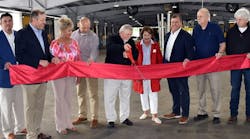It's hard to argue with the concept behind the proposed rule on mandatory hours-of-service recorders from the Federal Motor Carrier Safety Administration — make the worst offenders toe the line and encourage everyone else with incentives. The problem is that after three years of studying the issue, everyone expected FMCSA to address the problem of HOS enforcement head on. Instead they've chosen to do as little as possible in the hope that they can avoid more criticism or court challenges over the issue.
I doubt their proposal will even achieve that shortsighted and limited goal.
Bowing to what seemed to be the inevitable, even the American Trucking Assns. had signaled it was ready to accept mandatory electronic onboard recorders (EOBRs) for all drivers subject to HOS regulations. It made sense. The new HOS rules haven't been well received by the general public, who've seen them characterized in the press as a gift to trucking that allows companies to push drivers to work too many hours. Agreeing to EOBRs would at least take away the argument that too many ignore even these so-called liberal rules and create a level playing field with all carriers, not just responsible ones, playing by the same rules.
So what has FMCSA decided to do? It's proposing that only carriers with a high rate of HOS violations uncovered by compliance reviews over a two-year period be required to install the recorders. By the agency's own estimate, if the rules were in effect today they would mandate EOBRs for only 930 out of 650,000 registered carriers, or just 0.1% of those required to operate under HOS regulations.
For the rest of those 650,000, FMCSA says it will encourage voluntary installations with “incentives.” The incentives they've come up with — some leeway on compliance reviews and “partial relief” from supporting document requirements — are not likely to sway anyone to pay for and install EOBRs.
Under Federal guidelines for such rulemaking, the proposal is now followed by a comment period. In this case, those comments began flowing almost immediately, and most of them were highly critical. The ATA, which must have been as surprised as anyone by the narrowness of the proposed mandate, predictably called it “a sensible approach.” However, most of the other comments are far more critical. Even ATA's counterpart north of the border, the Canadian Trucking Alliance, expressed its “concern” that the proposal will not “level the playing field … for all” and pointed to its lack of “meaningful incentives” for voluntary use of the recorders.
If you're not a fan of mandatory EOBRs for automating drivers' logs, you may think you've dodged a bullet with this latest proposal. Chances are, though, your relief is going to be short-lived. Trucking's critics have long maintained that the industry uses its political muscle to avoid safety regulation that might impinge on productivity. You can argue all you want that HOS rules have no proven direct link to overall safety. To the public, the only reason trucking doesn't want recorders is that it wants to continue with a paper system that's easy to circumvent.
FMCSA's latest proposal just gives the critics more ammunition as they ask the courts to restrict HOS beyond current limits.
E-mail: [email protected]
Web site: fleetowner.com


